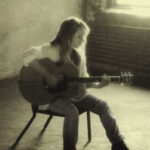Corey Hart’s “Sunglasses At Night.” Just the title alone sends shivers down my spine, and not in a good way. For anyone who endured the 1980s music scene, this track is likely etched into your memory, perhaps against your will. While some might fondly recall its synth-heavy hooks and vaguely rebellious lyrics, for me, this song represents everything I grew to loathe about that era of pop music. It’s a sentiment I know I’m not alone in feeling.
From the very first synthesized beat, “Sunglasses At Night” assaults the ears with a repetitive, almost monotonous melody. Then there are the lyrics, revolving around the now-iconic phrase “I wear my sunglasses at night.” What does it even mean? Is it a profound statement about hidden emotions, or just a nonsensical hook designed to be annoyingly catchy? The song offers little in the way of lyrical depth, instead relying on this central, baffling image of nighttime eyewear. It’s this lyrical simplicity, bordering on absurdity, that grates so intensely.
And let’s talk about Corey Hart’s vocal delivery. His signature “duck-face” singing style, as some unkindly dubbed it, combined with the song’s repetitive nature, created an auditory experience that felt less like music and more like a form of sonic torture. Turn on MTV in its heyday, and it seemed inescapable. Flick on the radio – there it was again, that incessant chorus about wearing sunglasses when the sun has gone down.
The bridge, often a saving grace in even mediocre songs, offered no respite here. Instead, it just prolonged the agony, amplifying the wish for a swift end to the musical ordeal. The song’s popularity at the time is baffling in retrospect. It’s a testament to the era’s sometimes questionable taste, or perhaps just effective marketing.
To be clear, this is purely subjective. Music is personal, and what one person despises, another might adore. But for those of us who find ourselves recoiling at the mere mention of “Sunglasses At Night,” it’s a shared experience of musical aversion. It’s a song that, despite its success, remains a prime example of 80s excess and lyrical shallowness for many listeners. And for me? Well, let’s just say I still reach for the skip button whenever it dares to surface.


